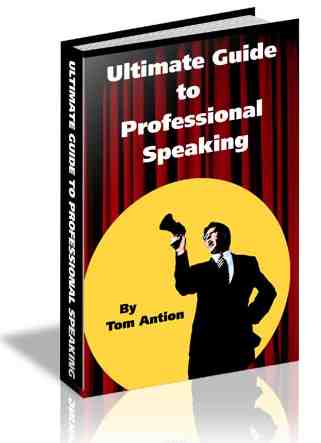When setting up a story:
Don't say the words funny, reminds me of, or story. These words are so overused they alert the audience that a story is coming. This causes audience members to resist your story rather than get caught up in your story. They say in essence, Let's see you make me laugh, or OK here comes another story. Don't say, I heard a good one the other day for the same reason you don't say it reminds me of. The audience will resist and challenge you to make them laugh. Never say, I don't know if I should tell this one. If there is any doubt whatsoever that a story is not appropriate for a particular group, leave it out.
Better ways to set up a story
The best way to start a story is to get right into it. You should be into the story before anyone realizes it is a story. That way they are already deeply involved and don't have time to resist. You could say:
There was this man ...
On the flight here ... Don't say, A funny thing happened on the way to the meeting today.
Driving in this morning ...
In the cab today ...
I was talking with ...
Let me take you back ..., Come with me ... Imagine ..., Visualize this ... These are a little different because they do alert the audience that a story is coming, but they get them so involved emotionally that any resistance is counteracted.
When getting out of a story
Never say, But seriously folks. If it was a funny story you don't have to say, Hey Stupid! That was a joke. It also implies you were lying. To exit a story, don't say anything about it being over. Just make a slight change in delivery, tone, rate, expression, etc., and go on.
Here Are Some More Don'ts
Use too many stories on the same topic. Each successive one will lose impact. Tell a story where you are the hero. If you are the hero, make it appear that it was dumb luck that made you so (self-effacing humor). If you are a bonafide hero, forget what I just said, but make sure you add a healthy dose of humility for best connection with the audience. Use terms foreign to the experience of the audience. Die of printed page poison. Written stories must be changed to be recited aloud. When you find a story that you like in a reference book, you cannot say it exactly as it is written or you will sound stupid. You must knock out the he saids and she saids. Don't give a history lesson when telling a humorous story. Put yourself into the story to make it believable. Fake truth is essential to humor even if story is totally false. The exception to the need for fake truth is when you are telling an exaggeration. Then anything goes. Example:
I had a terrible day at the beach. I came home with 14 harpoon wounds.






